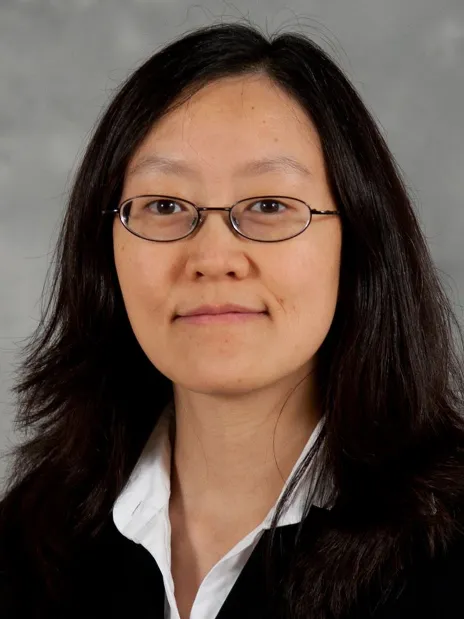Lab on a Chip
The journal for devices and applications at the micro- and nanoscale.
Editor-in-Chief: Aaron Wheeler
Open Access: Hybrid

Lab on a Chip is the premiere journal that publishes cutting-edge research in the field of miniaturization. By their very nature, microfluidic/nanofluidic/miniaturized systems are at the intersection of disciplines, spanning fundamental research to high-end application, which is reflected by the broad readership of the journal.
ISSN: 1473-0189
Indexed in: MEDLINE
Journal Impact factor
5.4 (2024)
First decision time (all)
31 days
First decision time (peer reviewed)
40 days
Scope
Lab on a Chip publishes two types of papers on original research: full-length research papers and communications. Papers should demonstrate innovations, which can come from technical advancements or applications addressing pressing needs in globally important areas. The journal also publishes Comments, Reviews, and Perspectives.
Here is a list of some of the types of research papers that Lab on a Chip seeks to publish:
- Fundamental understanding of micro and nano flows, soft matter principles, materials properties, etc
- Demonstration of miniaturised devices or systems that can be used to perform high-throughput experiments to accelerate discoveries: biomarker discovery, drug screening, protein engineering, (single) cell analysis, sequencing, synthetic biology, materials synthesis, etc
- Micro-Macro interfacing: fluid handling at multiscale, integration in experimental workflow, coupling to analytical instruments, etc
- Robotics and AI interfacing
- Automated or autonomous systems to be used to collect and analyse large amounts of data to understand complex systems
- Integrated systems to combine multiple functions into a single device to make experiments more efficient and cost-effective
- Device development for sensing, actuation, or light/matter interactions
- New miniaturised detection methodologies/principles for improving sensitivity, throughput, usability, robustness, and/or cost
- Organs-on-chip models and related topics, beyond simple cell cultivation on chip
- Chemical microreactors, synthesis in miniaturised devices beyond flow chemistry
- Diagnostic devices, point-of-care, healthcare medical devices, integrated devices in textiles, materials, and composites
Readership
Lab on a Chip coverage is highly relevant to a variety of industrial and academic sectors, including the following:
- Pharmaceuticals
- Medicine
- Analytical science
- Synthetic chemistry
- Biotechnology
- Physics
- Materials science
- (Bio)engineering
- Electronics
Information for authors
Want to publish in this journal? Our author guidelines explain how to prepare and submit your article and provide useful information on the review and publication process including transfers, revisions and any article processing charges (APCs) that may apply.
You can read our payments and funding information for further details about APCs, which may apply for publishing open access in this journal, as well available discounts and waivers.
You may be able to publish open access in this journal, with no APC to pay, if your institution has an open access agreement with us. You can use our journal finder tool to check for agreements between us and your institution.
Meet the team



Yoon-Kyoung Cho
Associate editor
Ulsan National Institute of Science & Technology (UNIST)
View profile





Esther Amstad
EPFL
Robbyn Anand
Iowa State University
Yoshinobu Baba
Nagoya University
Anja Boisen
Technical University of Denmark
Oscar Ces
Imperial College London
Dino Di Carlo
University of California
Stephanie Descroix
Institut Curie
Petra Dittrich
ETH Zürich
Xudong Fan
University of Michigan
Qun Fang
Zhejiang University
Albert Folch
University of Washington
Piotr Garstecki
Institute of Physical Chemistry of the Polish Academy of Sciences
Martin A. M. Gijs
EPFL
Keisuke Goda
The University of Tokyo
Jesse Greener
Laval University
Burcu Gumuscu
Eindhoven University of Technology
Mei He
University of Florida
Tony Jun Huang
Duke University
Daniel Irimia
Massachusetts General Hospital
David Issadore
University of Pennsylvania
Abhishek Jain
Texas A&M University
Noo Li Jeon
Seoul National University
Sunghoon Kwon
Seoul National University
Wilbur Lam
Georgia Institute of Technology and Emory University
Abraham Lee
University of California
Gwo-Bin Lee
National Tsing Hua University
Weihua Li
University of Wollongong
Xiujun Li
University of Texas at El Paso
Chwee Teck Lim
National University of Singapore
Ai Qun Liu
Hong Kong Polytechnic University
Adrian Neild
Monash University
Nam-Trung Nguyen
Griffith University
Ian Papautsky
University of Illinois at Chicago
Sally Peyman
Heriot-Watt University
Jianhua Qin
Dalian Institute of Chemical Physics
Darwin Reyes-Hernandez
National Institute of Standards and Technology
Anderson Shum
University of Hong Kong
David Sinton
University of Toronto
Shoji Takeuchi
The University of Tokyo
Sindy Tang
Stanford University
Yi-Chin Toh
Queensland University of Technology
Albert van den Berg
University of Twente
Joel Voldman
Massachusetts Institute of Technology (MIT)
Jeff Tza-Huei Wang
Johns Hopkins University
Wenhui Wang
Tsinghua University
David Weitz
Harvard University
George Whitesides
Harvard University
Angela Wu
Hong Kong University of Science and Technology
Chaoyong James Yang
Xiamen University
Roland Zengerle
Hahn-Schickard
Weian Zhao
University of California
Federica Caselli
University of Rome Tor Vergata
Qun Fang
Zhejiang University
Han Wei Hou
Nanyang Technical University
Thomas Laurell
Lund University
Sara Mahshid
McGill University
Ian Papautsky
University of Illinois at Chicago
Yi-Chin Toh
Queensland University of Technology
Yong Zeng
University of Florida
Philippa Ross
Executive Editor
Alice Smallwood
Deputy Editor
David Lake
Development Editor
Gabriel Clarke
Development Editor
Rebecca Garton
Editorial Manager
Derya Kara-Fisher
Publishing Editor
Emma Stephen
Publishing Editor
Charlie Palmer
Publishing Editor
Tabitha Jay
Publishing Editor
Darryl Wilks
Editorial Assistant
Andrea Whiteside
Publishing Assistant
Sam Keltie
Publisher
Read this journal
Communication
Well-defined assembly of plasmonic metal nanoparticles by dielectrophoresis for highly sensitive SERS-active substrates
Critical review
Cancer-on-a-chip for precision cancer medicine
Paper
Compartmentalized perfusion for temporal control of the chemical microenvironment of iPSC-derived cardiac cells
Critical review
From Lab-on-a-Chip to Lab-on-a-Chip-in-the-Lab: a perspective of clinical laboratory medicine for the microtechnologist
More from this journal
Contact the journal team
We're here to help. Contact the journal team if you have any questions about publishing your paper with us.
Sign up for journal email alerts
Get table of contents alerts and notifications about calls for papers, themed issues and more.
